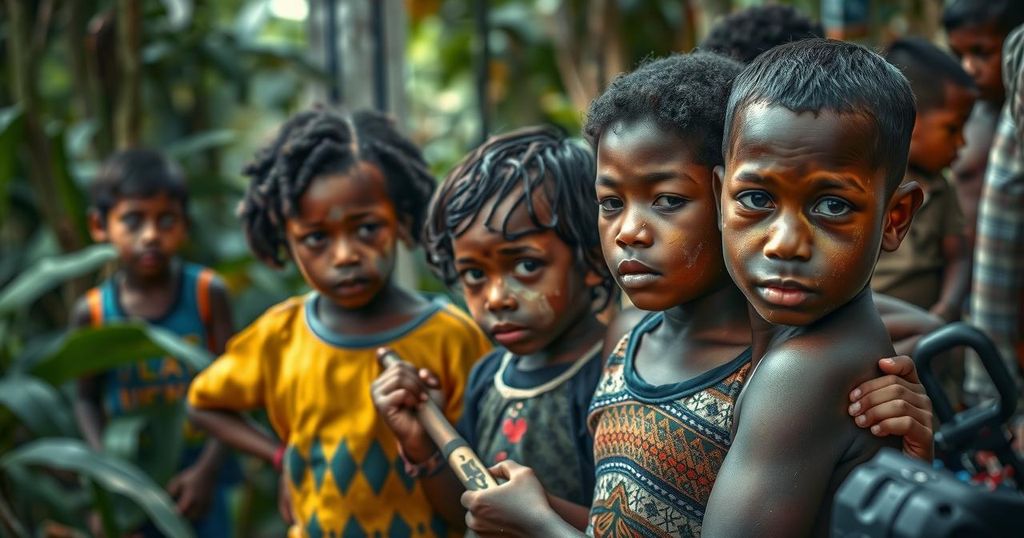Over 420,000 Children Impacted by Record Drought in the Amazon Basin

The United Nations reports that over 420,000 children in the Amazon face severe drought and water scarcity, urging leaders ahead of COP29 to enhance climate financing for vulnerable communities. The crisis threatens food security and healthcare access while exacerbating infectious disease risks. Urgent action and financial assistance of $10 million is sought by UNICEF to aid affected populations amid ongoing environmental challenges in the region.
According to the United Nations, an alarming figure of over 420,000 children in the Amazon basin are being adversely affected by unprecedented drought conditions and critical water shortages spanning Brazil, Colombia, and Peru. This ongoing crisis has heavily impacted Indigenous communities and others reliant on waterways for transportation and sustenance. In light of the upcoming COP29 climate summit in Baku, Azerbaijan, UNICEF’s Executive Director, Catherine Russell, has called upon global leaders to significantly enhance climate financing targeted at assisting children in these vulnerable regions. The drought, characterized by “dangerous levels” of water scarcity, threatens to exacerbate the already critical situation regarding access to essential resources such as food, clean water, health care, and education. In Brazil alone, the drought has rendered more than 1,700 schools and 760 medical clinics either closed or inaccessible due to dramatically lowered river levels. In Colombia and Peru, schools and medical services have similarly faced disruptions. The implications of food insecurity linked with this drought are dire, as they elevate the risk of child malnutrition, while lack of adequate drinking water may lead to a surge in infectious diseases. UNICEF urgently requires $10 million over the next few months to provide immediate assistance to the affected populations, including supplying clean water and deploying healthcare brigades to address emerging needs. Weather experts, including those from NASA and the EU’s Copernicus Climate Change Service, attribute the ongoing drought to the 2023-2024 El Niño climate phenomenon and the broader climate crisis. Despite these environmental challenges, there have been some positive developments; Brazil’s Environment Minister Marina Silva reported a 30 percent reduction in deforestation in the Amazon over the past year, the lowest in nine years, indicating that effective climate policy can yield results. Moreover, Colombia announced a historic 36 percent decrease in deforestation in 2023, showcasing regional commitments to environmental stewardship.
This article discusses the critical humanitarian crisis triggered by severe drought conditions in the Amazon basin, as reported by the United Nations. The article highlights the significant impact on children and vulnerable communities, emphasizing the need for increased climate financing to mitigate risks associated with water scarcity and food insecurity. It also touches on the broader context of climate phenomena like El Niño and provides insight into recent deforestation trends across Brazil and Colombia, shedding light on governmental efforts to combat climate change.
In summary, the unprecedented drought in the Amazon basin has severely affected over 420,000 children and their communities in Brazil, Colombia, and Peru. UNICEF has called for urgent financial support to alleviate the crisis exacerbated by climate change and El Niño. While deforestation reduction initiatives in Brazil and Colombia demonstrate progress in environmental governance, immediate actions are essential to safeguard the well-being of the most vulnerable populations amidst ongoing climate adversities.
Original Source: www.aljazeera.com






